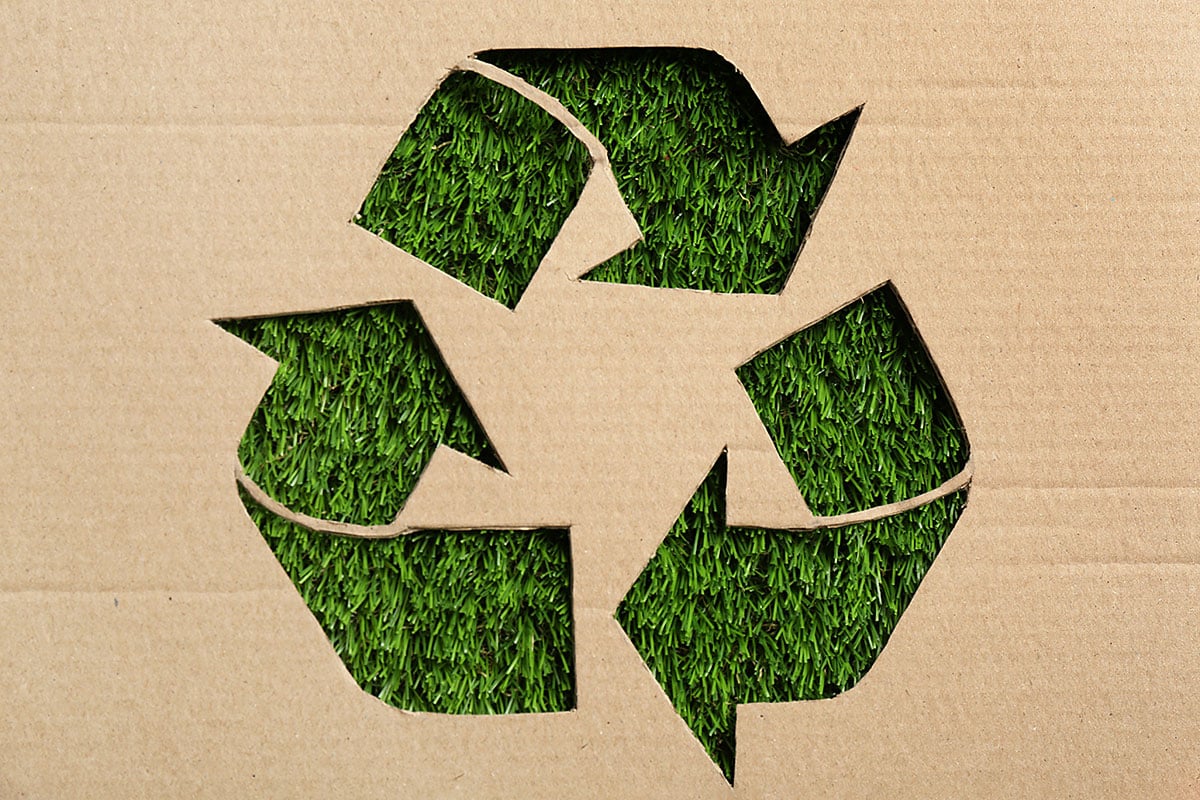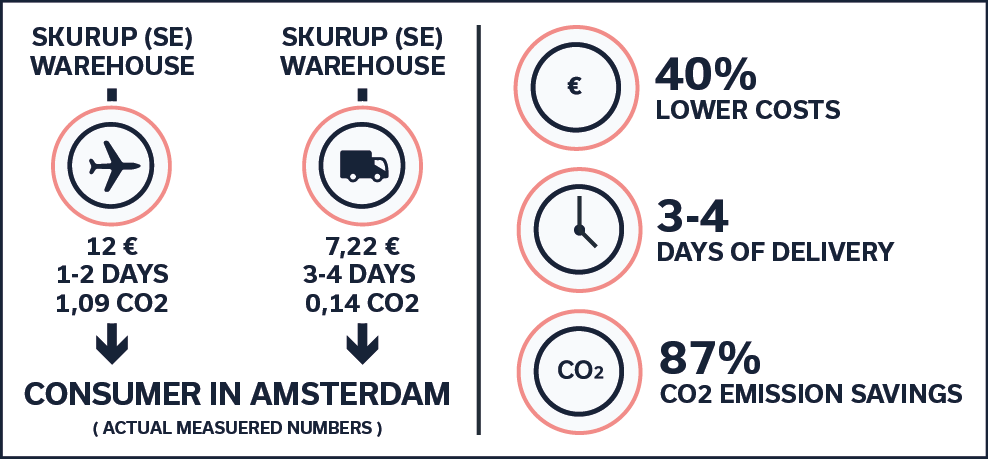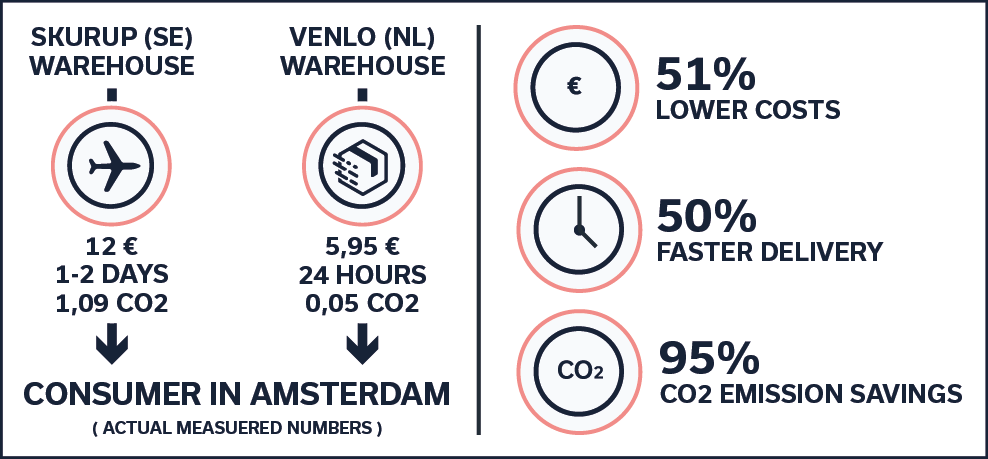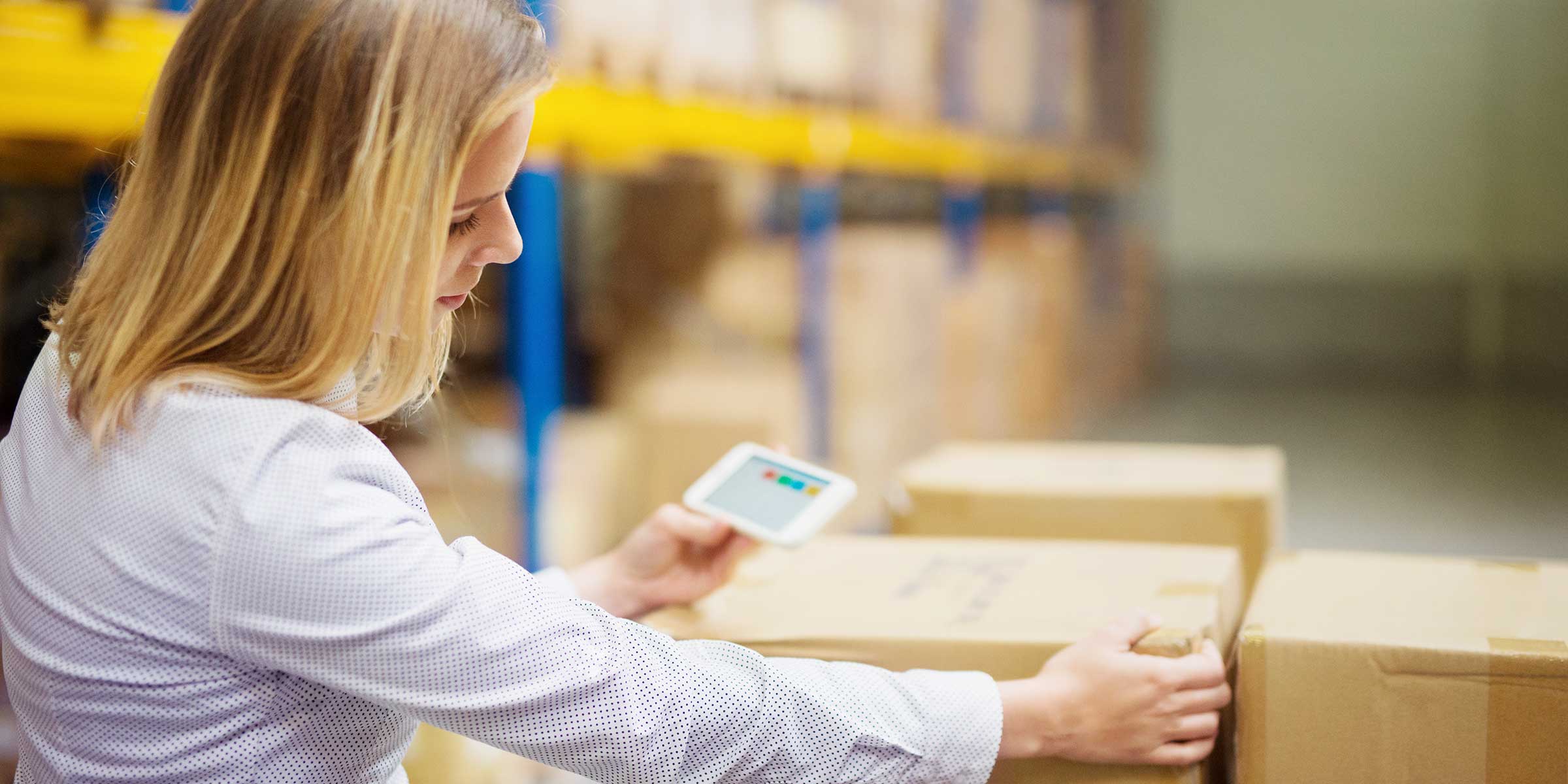
Ogoship
Eco-friendly shipping for eco-friendly online stores.
Gone are the days when sustainable packaging was enough to keep customers happy. And it’s a good thing that consumers are becoming more and more environmentally conscious — both for your business and the planet.
In 2022 and beyond, customers don’t treat eco-friendliness as an added bonus — it’s a make-or-break factor that determines whether they’ll hit that Purchase button.
So what’s an online store to do? That's what we'll discover next.


What you use to create your product (or where you source it from) is arguably the most important consideration in becoming an eco-friendly business. Customers will notice and even seek out products made with recycled materials, zero or fewer harsh chemicals, and that are certified organic.
If it’s not possible or feasible to use organic or recycled materials in your product, not to worry — there are plenty of other ways you can move the needle on the eco-friendliness of your business (we’ll get to those a little further down).
Single-use products or products with a short life cycle are undesirable for environmentally conscious shoppers. So if your product is replacing a single-use product or is created in a way that extends its life cycle, be sure to highlight it in your communications.
There’s no use having an eco-friendly product if it’s going to wear quickly or break easily, right? That’s why durability testing, quality guarantees, and even free repairs can help put customers’ minds at ease around the longevity and quality of products made from (for example) recycled materials.
Like all good things, products come to an end at some point too. And of course you can’t guarantee that customers will act responsibly at the end of the product’s life, there are a couple of things you can do to do your bit as a business, like giving clear instructions on recycling the product, or creative ideas on upcycling it.
So we’ve covered one piece of the puzzle: the product life cycle. But besides from the product itself, what other considerations should an aspiring eco-friendly online store make?
As long as you’re selling products, products will be returned. Perhaps the product or the size may be wrong, or the product might have been damaged.
From the eco-friendliness point of view, it’s important to try and minimize the need to return the product in the first place.
And while it’s not possible to eliminate all product returns (wouldn’t that be amazing?), there are steps you can take to reduce the frequency of returns, like:
Get in touch to find out how OGOship can help achieve your sustainability goals.
In the order fulfillment and product packaging phase, small considerations can make a big importance.
The beauty of running an online store is that you don’t need to worry about in-person visual merchandising or how your products look on the shelf at first glance. Of course, there are aesthetic aspects of product packaging that you can work on to create a great first impression when your customers receive your product — but they don’t have to come at a cost to the environment.
Here are a couple of tips for eco-friendly packaging and order fulfillment:
As a rule of thumb, air freight is the fastest but the worst possible option, shipping via rail and ocean freight are significantly better, and in regards to road freight, the answer is “it depends”.
It’s tough, because fast shipping is the #1 consideration for most e-commerce consumers, and it’s easy to feel the pressure to go to any lengths necessary to get your products to your customers fast — even if it’s at the expense of carbon emissions.
But if you’re not looking forward to pioneering a ”slow shipping movement”, you need to provide fast AND sustainable shipping both at the same time. The key to having the cake and eating it too? Distance.
In a recent study, we investigated the CO2 emissions on some of our routes — and the results emphasize the importance of distance.
Example 1
As you can see from the example, Air freight is the worst option to get products from Sweden to Amsterdam. Rail and ocean are better options, and road freight is a low CO2 option, and also a more economic solution.

Example 2
Optimized supply chain by multi-warehousing is not only the lowest CO2 option, but usually also the cheapest and fastest option too. Win-win! By using a local like option you really save on all key elements for your e-commerce business!

It simply means storing inventory in multiple warehouse locations, so that the distance between the product and the end customer is always as short as possible. In order to make this work, you do need to have a system that can handle connecting multiple inventories to the same store.
But don’t worry — warehousing in multiple locations might sound daunting at first, but once you understand the benefits of multi-warehousing (and how easy it can be with myOGO), you’ll never look back.

Faster shipments, lower costs and less Co2 emissions. Does that sound like something for you?
Get in touch with our e-commerce specialists today and explore the options available for your needs.
Many logistics companies have CO2 programs where they compensate for the CO2 emissions produced. Either they compensate for everything in bulk, or they offer additional CO2-free shipping options that may cost a little extra. DHL for example invests in various climate protection projects globally, PostNord has various initiatives from capacity utilization to bio fuel and FedEx is aiming for carbon neutrality by 2040.
As an online store, the most impactful deed you can do is, however, to keep the shipping distance as short as possible.
OGOship is a 3PL company specializing only in e-commerce. Our mission is to make sure e-commerce businesses can ship their goods fast and cost-effectively, all around the world.




Ultimately, it’s up to you to find the right balance of eco-friendliness and cost effectiveness for your business and your products. However, it is the job of the e-commerce industry to do better for our planet.
Our friendly e-commerce experts are knowledgeable in all things sustainable shipping and multi-warehousing — and they’d love a chance to chat with you. Simply get in touch.
Ready to learn more? Our experts will answer any questions you may have on how to get started, what the key features are, which warehouse locations bring your e-commerce business the maximum benefit.
Newsletter